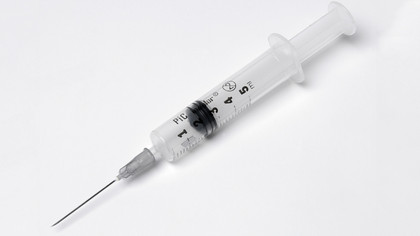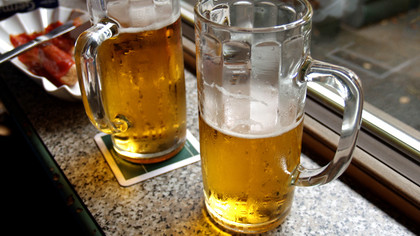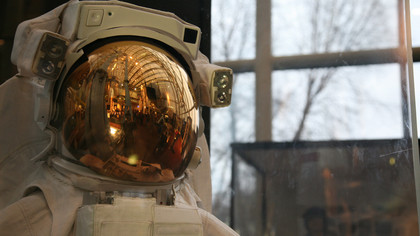
The first ever-lab grown kidney actually works -- Medical science made a huge breakthrough this week with the first ever working transplant of a kidney wholly grown. It was grown in just two weeks in a lab from a combination of human stem cells and rat kidney cells. The kidney was inserted into a rat where it was capable of filtering urine just like a natural kidney could. Unfortunately, it only managed 10 per cent efficiency, but it's a start. The next step is to try the same thing in pigs, which have very similar vascular systems to our own, and to get the efficiency up. It's a little while away yet, but kidneys grown to order might soon be available for human transplant, and that really will be revolutionary. [Nature]
Anti-cancer scientist jailed for faking results -- The first scientist to be convicted in the UK for breach of scientific safety laws, has just been jailed for three months. Steven Eaton, who worked for pharmaceutical firm Aptuit, was prosecuted under the 1999 Good Laboratory Practice Regulations for falsifying test results from an in-research anti-cancer drug. By selectively reporting results, he was able to show that the drug had passed tests, when indeed it had failed. The court was told that the drug could have easily caused irreparable damage to cancer patients if it had been cleared for sale. It just goes to show that there's greed and dishonesty within science, just as there is within any other industry. [BBC]

Pleasure and beer go hand-in-hand -- The reason why so many of us love beer has finally been unearthed. It's been known for a long time that alcohol releases dopamine to tickle our pleasure centres, but now the mere taste of beer has been proven to produce a similar, but totally separate response. A study that sprayed just 15ml of beer onto the tongues of volunteers showed large spikes in dopamine levels within minutes of tasting the beer. That triggers our reward response, the same one that's also initiated when you sleep or have sex, and is one of the reasons why you get cravings for beer.
The researchers also discovered that people with a history of alcoholism in the family got a much bigger surge in dopamine levels in the brain when tasting beer. That might explain why some people are predisposed to alcoholism, and find it much harder to kick the habit. [Neuropsychopharmacology]

Nano-suits could be the new spacesuits -- What if you could be protected from the harsh vacuous environment of space by just an impossibly thin layer, like an invisible micro spacesuit. That's what researchers accidentally discovered when they bombarded a worm with electrons in the vacuum of an electron microscope. The electrons imparted energy onto the outside skin of the worm, causing it to polymerise into a nanoscopic protective layer, allowing the worm to move and survive normally in a vacuum.
Researchers then found they could create artificial nano-suits using compounds coated onto the outside of insects in a similar manner. Scientists think that this kind of nano-suit technology could be adapted to create new spacesuits and other protective gear against the deadly environment of space. An invisible shield, barely the width of a human hair, sounds like something out of a sci-fi movie, but could turn out to be a very real possibility. [Science]

Flash, and a black hole is born -- Black holes are so named because you can't actually see them. They're black, appearing invisible in space, because they absorb all light and other electromagnetic waves, as well as all matter. However, it seems a burst of neutrinos given off by the formation of a new singularity, as a star simply implodes, might be the key to spotting them. As the neutrinos are ejected, the core of the star suddenly becomes lighter, which in turn fires a shockwave through the star's outer layers. This sends them flying off into space, glowing brightly as they do so. That process creates enough of a flash of light for us to see back here on Earth, allowing us to witness the birth of a new all-consuming black hole. [New Scientist]
Get daily insight, inspiration and deals in your inbox
Sign up for breaking news, reviews, opinion, top tech deals, and more.
![A black hole, yesterday [Image credit: NASA]](https://cdn.mos.cms.futurecdn.net/9014a27bffe194f72532bfad58656a37.jpg)
Fancy eating a tree for dinner? -- Scientists have managed to transform indigestible cellulose, what you might call fibre in your diet, into one of our staple foods, starch. Cellulose and starch are both made of chains of glucose, differing only in the way the chains are constructed. Using synthetic enzymes, researchers were able to essentially convert cellulose into starch, which is a far harder prospect than it sounds. The resulting material can then be process into all sorts of things, potentially including food, or a new source of biofuel to keep our engines running. [PNAS]